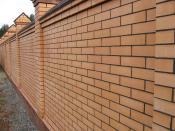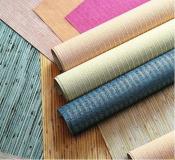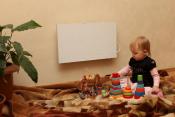Search
Login
Primer, types, how to choose
Using a primer before finishing, you will save from 10 to 70% of paints and varnishes.
Content
- Why is a primer needed?
- Types of primer for natural and artificial wood
- Primers and fillers for masonry
- Primers for metal
- Special primers or fillers
- Universal primers video
- How to choose a primer video
Why is a primer needed?
Meticulous surface preparation before the finish coating is a very important step, and if you neglect this, then the subsequent coating may be damaged.
The coating on any base surface must hold firmly. For this purpose, primers are used, they penetrate deeply into the base and improves its adhesion to the subsequent layer.
Application primers helps to more evenly apply paint, plaster, wallpaper glue, putty, etc.
It is possible to distinguish compositions suitable for the primary preparation of substrates (primer primers), as well as compositions for improving adhesion between the finishing layers.
Surface and penetrating soils are used, their choice depends on the type of substrates - it can be strongly or slightly absorbent. to prepare the base, increase its leveling and absorbing ability, for adhesion to the coating, universal surface soils can be used.
To strengthen highly absorbent substrates, penetrating primers should be used.
Each primer coat should dry from 1 to 12 hours.
Types of primer for natural and artificial wood
For such purposes, several types of primer are used, namely.
standard wood primer
Organic solvent based primer is a traditional wood primer.
The use of the above primer does not allow subsequent layers of the finish coat to be absorbed into the wood.
acrylic primer for wood
Acrylic primers on a water basis, they do not have such a strong smell as primers based on organic solvents, dry much faster.
Brushes, rollers and tampons can be washed just with water.
aluminum primer for wood
For coniferous as well as deciduous resinous species of wood, for example, such as teak or aphrormosis, an aluminum primer is used for wood.
fiberboard primer (MDF)
Medium density fibreboard has an increased absorbency, therefore it is difficult to prime.
Modern manufacturers offer a white primer, water-based, it is specially designed for fiberboard or MDF.
Primers and fillers for masonry
Concrete and masonry have a porous system; special primers have been developed for such materials.
alkali resistant primer
Some building materials contain alkali.
Alkali-resistant primer does not allow aggressive alkaline substances to affect the finishing coating.
primer as a stabilizing solution
A stabilizing solution is used to bond the surfaces of crumbling or peeling materials, to limit their absorption of new plaster.
Available as a clear liquid or white primer.
The stabilizing solution is used as a primer, for example, so that the lime whitewash retains subsequent layers of emulsion or facade paint.
concrete sealant
Such a sealant is ideal for sealing the porous surface of concrete, usually it is applied with a roller on a long handle.
water repellent
In order to prevent water from penetrating the porous surface of the masonry, a water-repellent is used.
To facilitate the coating process, unstable paint is added to the solution, allowing you to track the stained areas.
After drying, the layer becomes colorless.
dirt repellent
A transparent agent is applied on top of the masonry paint, it causes rain water to spread evenly over the surface, thereby preventing unsightly dirty streaks from appearing, and reducing the deposition of dirt.
quick-drying alcohol primer
To hide problem spots on the painted masonry, a useful white primer is used.
The use of a white primer does not allow stains to appear on the surface of new layers.
White primer, one of the few products that have been successfully used on Creazot treated wood, tar and bitumen.
Denatured alcohol is used as a solvent for this primer, after 10 minutes it becomes dry to the touch, after 30 minutes you can apply the next coat of paint.
Primers for metal
Metal has the property of rusting, to reduce this drawback, special tools have been developed.
iron minium
It perfectly protects iron and steel from rust, one layer is enough to create a base for the finish.
water based primer
Such a primer is quick-drying, suitable for most metals, it protects well prepared surfaces of ferrous metals, but it must be applied on the day the metal is prepared.
This primer is not suitable for unprepared galvanized surfaces.
anticorrosion primer
Such a primer can be applied directly to a rusted surface, but previously clean loose corrosion.
zinc phosphate primer
Universal primer, used for ferrous and non-ferrous metals, including galvanized surfaces and aluminum.
primer for galvanized metals
The galvanized metal surface is a problem surface, since most paints do not hold well.
Many manufacturers, at present, offer a special primer for galvanized metals.
radiator primer
It is used as additional protection on top of the factory primer before painting, dries within an hour and can then be coated with enamel for radiators.
Special primers or fillers
Special primers are used when working with artificial materials, to mask stains from moisture, etc.
primer for pvc
The primer is a means for updating windows and doors made of unplasticized PVC, provides excellent adhesion of the upper layer.
ceramic tile primer
It is used in the manufacture of ceramic tiles so that the paint does not peel off the glossy surface of the glazed tile.
melamine primer
It is used for maintenance of kitchen furniture, can be used as the basis for glossy or semi-gloss paints. Brushes are washed simply in water.
stain primer
It well hides stains from nicotine, soot, ballpoint pens, well masks water stains when leaking roofs or plumbing.
On top of this primer, after it dries, you can apply emulsion paint or solvent-based paint.
wet stain primer
The primer does not eliminate the causes of rising or penetrating dampness, it is used only so that the spots do not spoil the appearance.
Universal primers
If you need to primer plastered walls, platbands, plinths and all this at the same time - use general primers, universal primers.
How to choose a primer
All primers are made on mineral, acrylic, alkyd and other bases.
Cement, acting as a binder in mineral soils, such primers are used for quick primary processing and preliminary leveling of internal walls of concrete, light concrete, brick, gas-silicate and expanded clay concrete blocks.
Acrylic universal water-borne primers have good hiding power, suitable for preparing surfaces from concrete and concrete blocks, cement and cement plaster, gypsum and gypsum plasterboards, wood.
Alkyd based primers, quick drying, used for primary and secondary processing of painted wooden substrates, fiberboard and particleboard.
In addition, they are able to penetrate well to surfaces such as fiberglass, PVC plastic, galvanized steel, glass, and tile.





